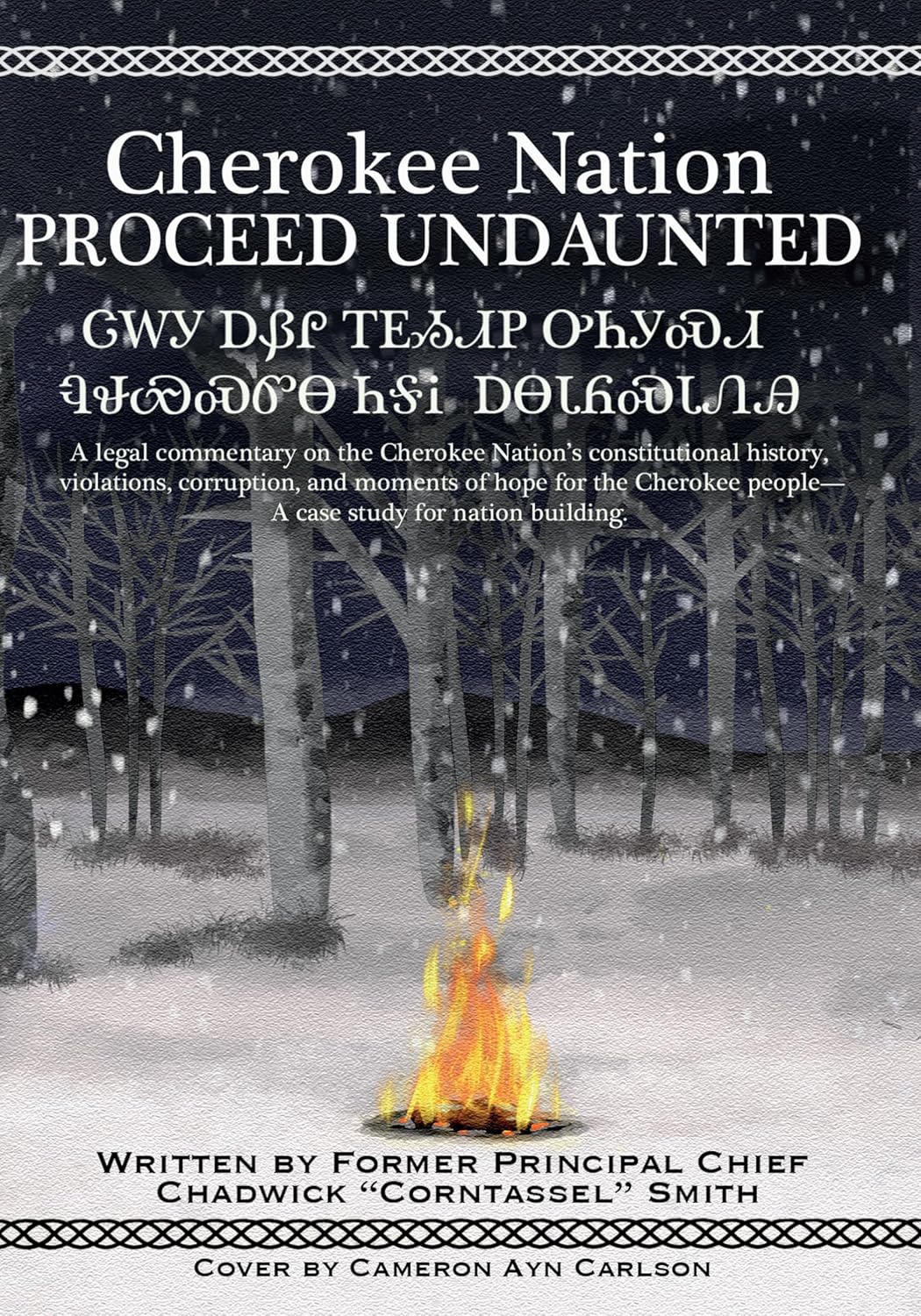
The Cherokee Nation has a long history of resilience, adaptability, and self-governance. However, as Chadwick “Corntassel” Smith warns in Cherokee Nation: Proceed Undaunted, modern Cherokee governance may be drifting away from its traditional cultural values. The challenge lies in balancing contemporary political realities with ancestral wisdom—ensuring that governance remains rooted in Cherokee identity rather than becoming a bureaucratic system detached from its people.
Traditional Cherokee Values: The Foundation of Governance
Historically, Cherokee governance was based on consensus, community responsibility, and the sacred balance between leaders and the people. Smith highlights the Keetoowah wampum belts, which symbolized the “white path”—a guiding principle of integrity, fairness, and service to the people. Decision-making was not about individual power but about maintaining harmony within the Nation.
Smith also emphasizes the role of traditional councils, where leaders acted as stewards rather than rulers. Leadership was based on humility, wisdom, and service, rather than personal ambition or financial gain. The Cherokee language itself reflects these values, with phrases emphasizing collective well-being over individual authority.
Where Modern Governance is Diverging
- Power Centralization vs. Consensus Governance
- Smith critiques the increasing centralization of political power in the Cherokee Nation. Traditional governance relied on decentralized, community-driven decision-making. Today, decisions are often made by a small group of political elites, without widespread consultation.
- The weakening of local communities and the erosion of grassroots decision-making stand in stark contrast to the Cherokee tradition of collective leadership.
- Corruption and Self-Interest
- Smith warns of a growing culture of political favoritism, nepotism, and self-serving leadership. This is a sharp departure from the Cherokee values of public service and communal well-being.
- He cites cases where elected officials manipulated constitutional processes for personal or political gain, undermining the fundamental principle that leadership is a sacred trust.
- Economic Growth vs. Cultural Responsibility
- While economic development is crucial for the Nation’s survival, Smith argues that it must align with Cherokee values.
- He questions whether main-stream governance prioritizes financial gain over cultural preservation, citing instances where large-scale economic ventures have displaced traditional practices and weakened community ties.
- Erosion of the Cherokee Identity
- Traditionally, Cherokee governance and culture were inseparable. However, many official government proceedings today are conducted in isolated decision-making by elected officials.
- Without active reinforcement, cultural identity risks becoming symbolic rather than lived reality.
How the Cherokee Nation Can Reconnect with Its Values
To ensure governance aligns with traditional Cherokee values, Smith advocates for several reforms:
Strengthening Community Leadership – Local communities and grassroots decision-making should be reinvigorated to reflect the traditional consensus model.
Prioritizing Ethics and Accountability – Cherokee leaders must embody the values of humility and service, reinforcing ethical governance through transparency and constitutional integrity.
Integrating Culture into Governance – The Cherokee language should be used more prominently in official government affairs, reinforcing cultural identity.
Economic Policies with Cultural Safeguards – Development should not come at the cost of Cherokee traditions; business ventures must align with the Nation’s values.
Smith’s central message is clear: The Cherokee Nation cannot afford to lose its way. Governance must evolve, but not at the expense of the very principles that have sustained the Nation for generations. By restoring traditional Cherokee values within modern governance, the Nation can ensure a future that is both prosperous and deeply rooted in its identity.